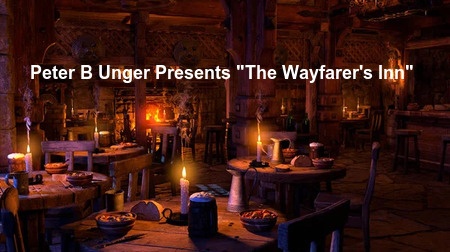
“The Wayfarer’s Inn” by Peter B. Unger is a captivating and profound story about spiritual journeys, confronting doubts, and rediscovering faith. The narrative begins in a dramatic setting—a cold and dark night—where a tragic accident on a desolate highway sets the tone for a reflection on the fragility of life. The tense atmosphere and detailed descriptions of the scene suggest that the events will serve as a catalyst for the inner transformation of the characters.
At the heart of the story is Pastor Jim, a complex character torn between his desire to rationally understand faith and his need to experience an authentic connection with God. Growing up in a family open to questioning and critical reflections on religion, Jim is caught between the conservative traditions of his congregation and his own intellectual doubts.
A key moment in the story is the discovery of “The Wayfarer’s Inn”, a refuge both physical and spiritual, symbolizing introspection and transformation. Here, the characters confront their fears and flaws. Through tense dialogues, such as those between Alice, obsessed with control, and Lynn, who challenges her methods, the author delves into themes such as prayer, communal responsibility, and vulnerability as a tool for spiritual growth.
The struggle between reason and faith, central to the novel, is embodied in Pastor Jim, who represents the modern Christian navigating between rational logic and the call to a genuine relationship with God. Transformation through grace is another major theme, reflecting the power of change when hearts are open to God. Unger also emphasizes the value of community and vulnerability, illustrating how sharing struggles and opening up to others not only heals but strengthens spiritual and personal bonds.
Unger’s style is detailed and rich in imagery, creating an immersive atmosphere that engages the reader emotionally and intellectually. The absence of clear or immediate answers adds authenticity to the story, preserving the spiritual realism of the quest for self-discovery.
The novel stands out for the psychological depth of its characters, each well-drawn and offering a unique perspective on life and faith. The subtle blending of theology with a compelling narrative turns “The Wayfarer’s Inn” into a thought-provoking read without being didactic.
The ending is particularly powerful, with Pastor Jim leaving the inn transformed, not only experiencing emotional relief but also renewing his faith. The symbolism of nature calming from a storm to gentle snowfall mirrors the inner peace he finds. Unger suggests that life’s journey, though fraught with trials, can be one of hope and meaning when viewed through the lens of divine grace. The message of hope and renewal is another highlight, with the optimistic ending showing that no matter the challenges, life can be transformed through God’s grace. This combination of deep reflection and emotional storytelling makes the novel a memorable work, suitable for anyone seeking answers to the essential questions of faith.
“The Wayfarer’s Inn” is a thought-provoking read that invites readers to reflect on their own relationship with faith, doubts, and community. It is a novel that blends psychological introspection with practical theology, offering a compelling story of rebirth and reconnection with the divine. Peter B. Unger succeeds in creating a work that resonates deeply with the soul, encouraging readers to reevaluate their own beliefs and seek deeper meaning in their personal journey.

